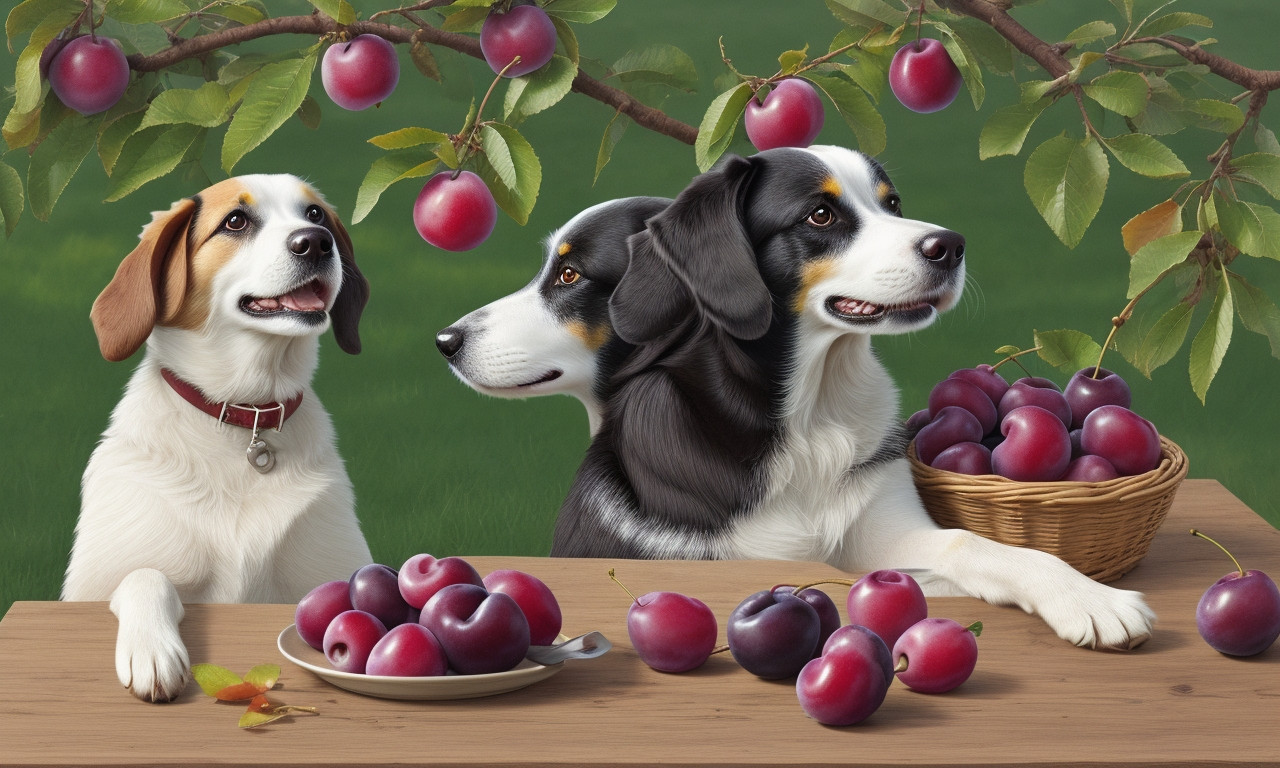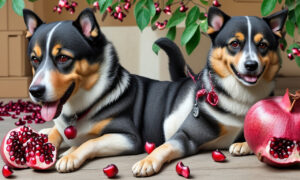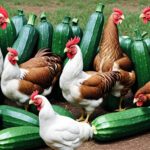For many dog owners, the question of what human foods are safe for their furry companions is a constant concern. With a multitude of opinions and advice available, it can be overwhelming to discern fact from fiction. One particular query that often surfaces is, "Can dogs eat plums?" As responsible pet parents, we strive to provide the best nutrition and care for our dogs, ensuring their prolonged health and happiness.
Fruit consumption for dogs often garners mixed opinions. While some fruits offer health benefits, others can pose risks. Plums, with their sweet flavor and juicy flesh, might be tempting to share with your pup. However, it’s essential to understand the potential impacts.
The Plum-Puppy Conundrum: Safe Snack or Furry Foe?
Before you consider letting your pup indulge in this seasonal stone fruit, it’s crucial to uncover the facts about plums and their relation to canine health.
Nutritional Profile of Plums
Plums are known for their nutritional benefits, which include:
- Vitamins: They are rich in vitamin C and vitamin A, which can support dogs’ immune systems and vision.
- Antioxidants: Plums contain antioxidants that help combat free radicals, potentially reducing inflammation and promoting overall health.
- Fiber: The fiber in plums can aid in digestive health, although excessive amounts can cause gastrointestinal issues.
Despite these positives, the risks associated with dogs eating plums outweigh the benefits.
Related article; can dogs eat egg shells
Potential Risks of Feeding Plums to Dogs
The Pit Peril
The pit of the plum is a choking hazard and poses a threat to your dog’s dental health. It can lead to obstructed airways or intestinal blockages if ingested. Moreover, plum pits contain cyanide, a toxic substance that can cause cyanide poisoning in dogs.
Related article; can dogs eat pecans
Sugar Content Concerns
Plums have a high sugar content, which can be detrimental to a dog’s health if consumed in large quantities. This can lead to weight gain, diabetes, and dental problems.
Related article; can dogs eat kiwi
Fruit Flesh and Gastrointestinal Woes
While the flesh of the fruit may seem harmless, it can still cause gastrointestinal distress in some dogs, including diarrhea and vomiting. Dogs with sensitive stomachs or those not accustomed to fruit might have an adverse reaction.
Related article; can dogs eat cabbage
Veterinary Insight: Expert Opinions on Dogs and Plums
Consulting with a veterinarian can provide clarity and peace of mind when considering if dogs can eat plums. Most vets advise against it due to the potential hazards mentioned above.
Related article; can dogs eat watermelon
When a Taste Turns to Trouble: Recognizing Plum Toxicity in Dogs
Though rare, it’s important to recognize the symptoms of plum pit poisoning, which include:
- Difficulty breathing
- Dilated pupils
- Excessive drooling
- Collapse
If you suspect your dog has consumed a plum pit, seek veterinary assistance immediately.
Alternatives to Plums: Dog-Safe Fruits
Offering Healthy Fruit Options
Opting for safer fruit choices can satisfy your dog’s sweet tooth while keeping them out of harm’s way. Consider these dog-friendly fruits:
- Apples (without seeds)
- Blueberries
- Cantaloupe
- Bananas (in moderation due to sugar)
Always introduce new foods gradually and in small portions.
Crafting a Plum-Free Diet for Your Dog
While it’s tempting to share our favorite treats with our pets, it’s essential to tailor their diet to their specific needs. A balanced, high-quality dog food formulated for your dog’s life stage and health requirements should be the foundation of their nutrition.
Homemade Treats: DIY Snack Alternatives Without Plums
Creating homemade dog treats allows you to control the ingredients and avoid unwanted additives. Use dog-safe fruits and consult with your vet for suitable recipes.
FAQs: Uncovering the Truth About Dogs and Plums
In this section, we’ll address common concerns and provide clear answers.
Can dogs eat plums in small quantities?
It’s best to err on the side of caution and avoid giving plums to your dog altogether. The risks outweigh any potential benefits.
What should I do if my dog accidentally eats a plum?
Monitor them closely for any signs of distress and contact your veterinarian for guidance. Be prepared to describe the amount consumed and any symptoms observed.
Are there any parts of the plum that are safe for dogs?
The flesh, in tiny amounts, may be tolerated by some dogs, but the potential for gastrointestinal upset and the risk of the pit make it an unsuitable treat for dogs.
The Bottom Line: Plums and Pooches Don’t Mix
In conclusion, while healthy eating is as vital for our dogs as it is for us, not all human foods are suitable for canine consumption. The answer to "Can dogs eat plums?" is a clear no when considering your dog’s safety and health.
- The risk of cyanide poisoning from the pit is a serious concern.
- The high sugar content can lead to health issues like obesity and diabetes.
- The potential for gastrointestinal upset is considerable.
Offering your dog a well-balanced diet tailored to their needs, coupled with vet-approved fruit alternatives, will help to ensure they live a happy, healthy, and plum-free life.
By educating ourselves and making informed choices about our pets’ nutrition, we can avoid potential dangers and enjoy the company of our four-legged friends for many years to come. While dogs cannot enjoy plums, there’s a bounty of other treats that can bring them joy without compromising their well-being.






